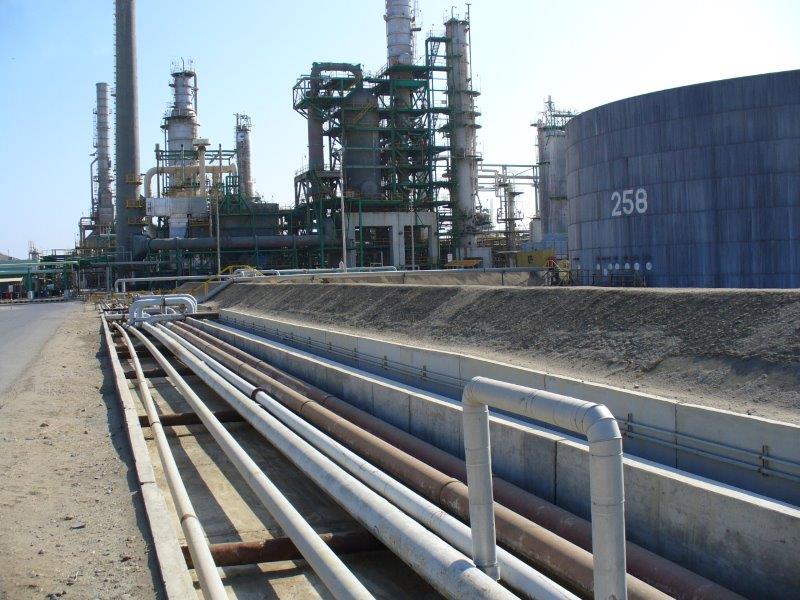Downstream Experience
Our downstream experience spans refinery feasibility studies, strategy development, procurement, and operations improvement analyses at refineries around the world.
An international integrated refiner and marketer
struggled with $100+ million in RINs costs. We developed an innovative approach to managing its biofuels blending and compliance. After reviewing its current approach to RFS2 and RINs strategy compliance, we proposed several strategies to maximize benefits and impact for the client. The client uses the results of this work to yield $15+ million in upfront and $20+ million in annual benefits.
A leading, North American ship building company
investigating opportunities for future work identified the energy market as suitable for entry with specific focus on the offsite manufacturing and construction of engineered modules and commissioned us to sufficiently review and define the market for engineered modules. We conducted a complete review of the global market for downstream facility construction services and included a detailed examination of competitors in the construction space (both US-based and international), principal customers and supply chain analysis, providing critical strategic insight to the client. The client used this information when deciding whether to enter the market.
A private equity company
considering an investment in a provider of compliance employee certification services for refining, E&P, petrochemicals, and the refining industries asked us to provide a phase 1 assessment of the Target’s business, including an evaluation of its financial condition, review of industry drivers including those regarding employment and employee testing, operator perspectives on purchasing these services, and key risks to the business. The client used this information to determine whether and how to proceed to purchase an equity stake in the Target.
A large Latin American national oil company
wanted to analyze whether and how to modernize and upgrade its largest crude oil refinery. The refinery feasibility study we completed helped determine the optimal future configuration for the refinery. After developing a 20+ year forecast of crude and product prices for the refinery, we created detailed linear programming models of each proposed refinery configuration, and then developed extensive economic models to evaluate and compare these options. The client used the results of the work to assess whether and how to move the project forward.
A Far Eastern country’s government refinery ministry
was concerned about how higher octane specifications in motor gasoline would affect the amount of carbon dioxide emissions from its crude oil refineries. In particular, they wanted a forecast of CO2 emissions from all of its refineries and refinery units. We used an industry-standard refinery linear programming model to simulate conditions in numerous refineries and predict CO2 emissions in several scenarios. The client used the results of the study to set current and future gasoline specifications in the country.
A specialty refinery services provider
needed help analyzing new business opportunities in a specific area. The client had developed a business model that transformed refinery sulfur byproducts into valuable agricultural fertilizer. Developed new ideas on how to expand this model into new markets and sulfur sources. The client used the results of the study to plan its future business expansion.
Completed a detailed logistics analysis for a large North American motor oil manufacturer.
Implemented a linear programming optimization model that included all sectors of the client’s production chain: from its production facilities through multiple levels of distribution centers to the retail and wholesale outlets. The client used the results of the study to determine when and where to build new manufacturing plants and to justify a significant reduction in the cost of its distribution network.
A supermajor oil company
in partnership with a national oil company needed to identify improvement opportunities in a jointly owned refinery. The “Phase 0” business process redesign assessment for the Middle Eastern refinery included a detailed review of line and staff activities, benchmarked performance against industry standards, and identified specific improvement opportunities. The client used the results of this work to negotiate multi-million dollar savings opportunities with its national oil company partner.
One of the world’s largest national oil companies (NOC’s)
needed help designing a new industrial city. We analyzed development and planning strategies for natural gas, petrochemicals and metals projects for the Middle Eastern country to help monetize its significant natural gas reserves and production. Developed detailed economic models, import/export forecasts, and infrastructure requirements for the projects under study. The client used the results of this work to plan future industrial development.
The World Bank
was concerned with the long-term viability of a state-owned Caribbean refinery. Our analysis reviewed the effect of multiple factors, including how state-set petroleum product prices compared to market levels. We developed a linear programming model of the refinery to better understand its conversion capabilities and potential. The Bank used the results of this study to negotiate financing terms for current and proposed loans to the country.
A large international energy firm
wanted to develop a significant investment strategy across multiple industry segments, including upstream, pipelines, LNG, power and gas distribution. We evaluated a series of multi-billion dollar natural gas infrastructure projects in South America, including gas E&P, pipeline compression, local gas distribution, LNG liquefaction and others. The resulting financial model included a variety of financing and currency exchange algorithms that helped the client evaluate specific financing strategies. The client used the results of this work to determine which parts of the value chain and which individual projects to develop.

